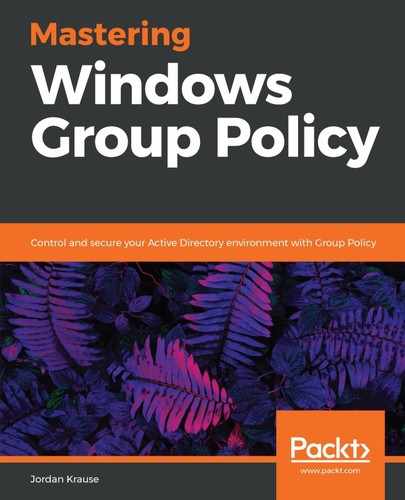Book Description
Improve and reimagine your organization's security stance, desktop standards, and server administration with centralized management via Group Policy.
Key Features
- Explore advanced filtering techniques for Group Policy Objects
- Interact with Group Policy through GPMC and PowerShell
- Practical guide covering the daily and advanced administration of group policy
Book Description
This book begins with a discussion of the core material any administrator needs to know in order to start working with Group Policy. Moving on, we will also walk through the process of building a lab environment to start testing Group Policy today. Next we will explore the Group Policy Management Console (GPMC) and start using the powerful features available for us within that interface. Once you are well versed with using GPMC, you will learn to perform and manage the traditional core tasks inside Group Policy. Included in the book are many examples and walk-throughs of the different filtering options available for the application of Group Policy settings, as this is the real power that Group Policy holds within your network. You will also learn how you can use Group Policy to secure your Active Directory environment, and also understand how Group Policy preferences are different than policies, with the help of real-world examples. Finally we will spend some time on maintenance and troubleshooting common Group Policy-related issues so that you, as a directory administrator, will understand the diagnosing process for policy settings.
By the end of the book, you will be able to jump right in and use Group Policy to its full potential.
What you will learn
- Become familiar with the Group Policy Management Console
- Create, link, and filter new policies
- Secure your users and devices using Group Policy
- Maintain and troubleshoot Group Policy
- Administer Group Policy via PowerShell
- Control your Active Directory environment efficiently with Group Policy settings
Who this book is for
If you are an IT professional who works with Windows Servers or are interested in an Active Directory environment then this book is for you. General knowledge of Microsoft Windows, how Windows Server fits into an enterprise's infrastructure and also some existing knowledge of an Active Directory domain environment is expected.
